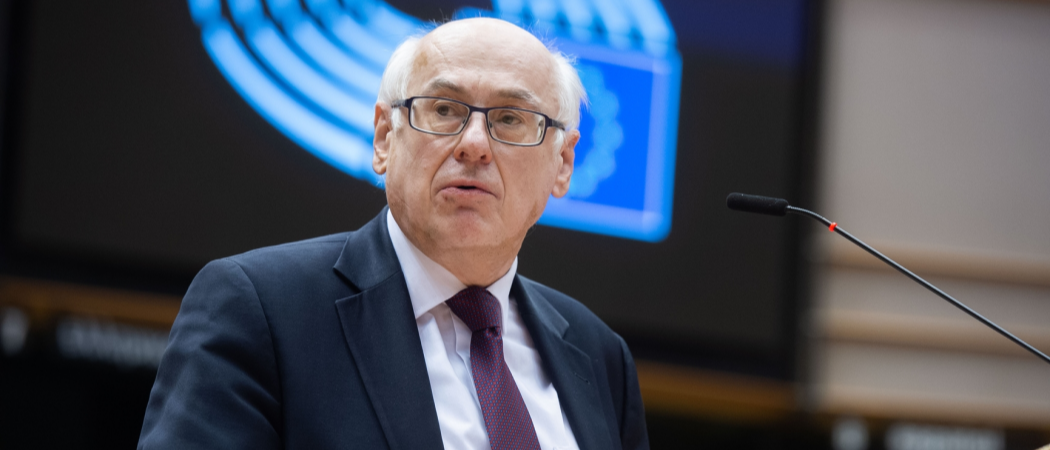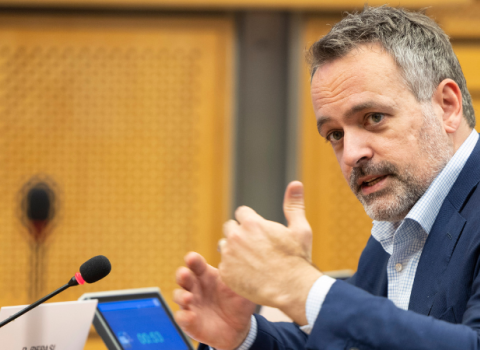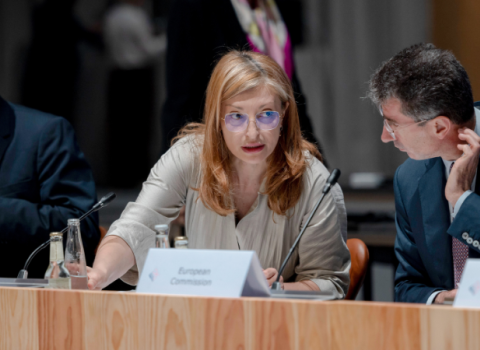MEPs vote to finalise bloc’s first-ever dedicated programme for military research. Final budget is €5B lower than originally planned

Zdzisław Krasnodębski, MEP. Photo: European Parliament
MEPs signed off on the controversial European Defence Fund on Thursday, clearing the way for a - lower-than promised - budget of €7.9 billion to go to new military research projects across the EU between now and 2027.
The programme is a pandemic casualty, losing some €5 billion in budget pledges since it was first announced in 2018. Given the ongoing fight to contain the virus, and a dire need to rescue cratered economies over the next few years, a vocal minority in parliament on Thursday said the fund should never have been launched in the first place.
Poland’s Zdzisław Krasnodębski, the MEP who has steered the file through parliament’s legislative mill over three years, defended the fund, setting out to dispel what he called ‘myths’ surrounding the EU’s military plans.
The programme follows on from a short pilot scheme and is the first of its kind to finance common defence-related R&D projects. The aim is both to reduce military reliance on the US and to help streamline a baffling plethora of military systems in Europe.
Speaking in the Strasbourg chamber, Krasnodębski said, “This is not the first step [towards] an EU army. The dreams of the first European legion will have to be left for the future.”
Thierry Breton, EU commissioner for the internal market, has been a vocal supporter of more defence spending in Brussels. He was in Strasbourg to give MEPs his big picture view of how a more “credible and independent” European military will help Brussels flex its geopolitical influence in the world.
“We can no longer be dependent on choices made by others,” Breton said. “After COVID, we’ve seen how we can’t be left with the least-bad choice to make. We must gradually be able to add to our soft power arsenal with more and more hard power.”
With both Russia and China investing in new missiles, nuclear capability, drones, unmanned weapons and artificial intelligence, Europe has to act, he said.
Breton added that 8% of the budget would target small companies and start-ups, with the first grant competition expected to be announced before the summer.
Reject this madness
Despite being voted through today, the programme has attracted a large amount of criticism. Some MEPs complained that its investments would lack transparency and parliamentary control.
Others, pointing to the Commission’s much-criticised efforts in procuring COVID-19 vaccines, said centralising more power in Brussels at this time was a bad move.
German Green Henrike Hahn said she worries about handing a “blank cheque” to industry. “For the next seven years, the European Parliament won’t be involved in scrutinising the spending,” she noted.
One of the strongest attacks on the programme came from Irish socialist Clare Daly. The initiative is, “a slush fund for weapons of slaughter,” she said, urging MEPs to, “Reject this madness.”
Among the fund’s supporters was French centre-right MEP François-Xavier Bellamy, who called on the programme managers in the European Defence Agency to “avoid a scattergun approach. We need strategic investment,” he said.
Italy’s Patrizia Toia, vice-chair of the ITRE committee on Industry, Research and Energy, said she wants to see the fund benefit SMEs, so “they’re not left by the wayside by large operators”. Toia also stressed that any research projects involving autonomous weapons should require “meaningful human involvement”.
According to French liberal Dominique Riquet, the fund is “a badge of maturity for Europe”. He regrets the programme has fallen victim to budget wrangling over COVID-19 recovery money. “It’s not as ambitious as we’d like,” he said.





 A unique international forum for public research organisations and companies to connect their external engagement with strategic interests around their R&D system.
A unique international forum for public research organisations and companies to connect their external engagement with strategic interests around their R&D system.